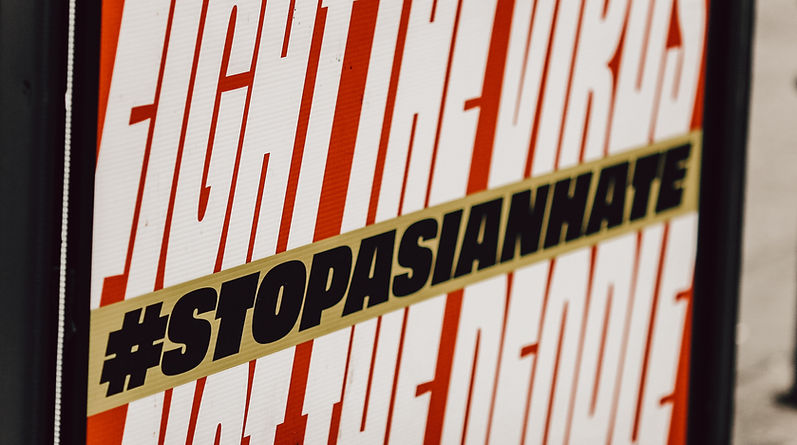U.S. sees uptick in anti-Asian hate; FL Dems want students to learn about Asian American history
By
Danielle J. Brown
Reporter
Sunday, October 17, 2021

Jon Tyson/Unsplash
This story was originally published by The Florida Phoenix.
Following 18 months of hate, violence and discrimination against Asian Americans and Asian immigrants, three Florida lawmakers want to incorporate the history of Asian Americans and Pacific Islanders into the state’s curriculum.
If approved by the Legislature and the governor, the AAPI courses and other materials would be added to required instruction under Florida law, such as history of African Americans and the history of the Holocaust.
“Asian American history is American history,” State Rep. Anna Eskamani said this week in a press release. “And yet for far too long, the contributions of the AAPI community in Florida and throughout the country have been invisible. Instead, there’s been a rise of hate towards Asian Americans, and our hope with this legislation is to combat that hate with education and empathy.”
The proposed bill comes at a time of a mass tragedy: A mass shooting in Atlanta in March reignited the conversation around anti-Asian discrimination, when a gunman went into Asian-owned spas and killed eight people, six of whom were women of Asian descent.
Eskamani is a Democrat who represents part of Orange County in Central Florida, and is sponsoring HB 281, along with fellow Orange Democrat Rep. Geraldine Thompson. Thompson has been adamant about making sure required courses, such as African-American history, are actually being taught.
Another Orange County Democrat is sponsoring the Senate version — State Sen. Linda Stewart.
“The history of Asian Americans and Pacific Islanders is a rich story that weaves into the fabric of our nation, but that story has gone untold in many of our schools,” Stewart said in the press release. “This bill would elevate AAPI history and ensure that Florida’s students receive a fuller and more inclusive education on the journey of Asian Americans and their contributions to American society.”
About 3% of Florida’s population identifies as Asian American, and Central Florida is home to a thriving AAPI community, according to U.S. Census data in the press release.
The AAPI curriculum would discuss “the immigration, citizenship, civil rights, identity, and culture of Asian Americans and Pacific Islanders and the contributions of Asian Americans and Pacific Islanders to American society. Instructional materials shall include the contributions of Asian Americans and Pacific Islanders to American society,” according to the bill language.
The origin of the proposed legislation comes from Mimi Chan, a martial arts teacher in Central Florida who started a petition on Change.org to include Asian American history instruction in Florida’s K-12 schools. It is part of Make Us Visible FL, a coalition working to integrate Asian American history in Florida’s education system.
As of Friday, 7,872 have signed the petition, according to the change.org website.
“Our children grow up with a gap in their knowledge of history. As we’ve seen all too often, this lack of information is dangerous,” according to remarks on the petition.
“By adding Asian American history to our educational curriculum, we can ensure that all students gain a better understanding of Asian Americans. Through education, both current and future generations can empathize with the triumphs and challenges of Asian Americans and appreciate what they’ve done to add to this red, white, and blue melting pot that we call the United States.”
In July, Illinois was the first state to adopt Asian American history curriculum in its public schools, starting in the 2022-23 school year, according to the Chicago Tribune.
There’s been increased cultural awareness and conversation surrounding discrimination against Asian Americans, particularly as the COVID-19 pandemic spread in the United States.
The Southern Poverty Law Center, a Montgomery, Alabama non-profit organization that works towards racial justice and monitors the nation’s hate groups, said that the United States has a “long and shameful history of violence and discrimination against Asian Americans,” according to an article from May highlighting the increase of hate incidents against Asian Americans and Pacific Islanders.
Events such as the Chinese Exclusion Act of 1882, which restricted immigration by Chinese people, and the Page Act before it, which was used to forbid immigration from Chinese women, are some of America’s earlier instances of anti-Asian sentiment, the SPLC article states. This continued during World War II, where Japanese Americans were, as the SPLC puts it, “unjustly incarcerated” in relocation centers, more commonly referred to as Japanese internment camps.
The New York City-based Anti-Defamation League also has reported increased instances of assault and harassment against Asian Americans along with the emerging COVID pandemic.
“These incidents include being told to ‘Go back to China,’ being blamed for ‘bringing the virus’ to the United States, being referred to with racial slurs, spat on, or physically assaulted. Statements by public officials referring to COVID-19 as the ‘Chinese virus,’ ‘Kung Flu’ or ‘Wu Flu’ may be exacerbating the scapegoating and targeting of the AAPI community,” according to an ADL web article in June 2020.
A California-based coalition called Stop AAPI Hate has been tracking instances of hate and discrimination against Asian Americans and Pacific Islanders since March 19, 2020, about the time when the then-novel coronavirus began impacting the United States.
“Of all incident reports, 4,548 hate incidents occurred in 2020 and 4,533 of hate incidents occurred in 2021,” as of a June 2021 report from Stop AAPI Hate.
The incidents documented ranged from discrimination, and verbal harassment, to online harassment, civil rights violations, and physical assault. The victims were Chinese, Vietnamese, Korean and other people of Asian descent.
The Stop AAPI Hate report notes that women made up 63.3 percent of the incident reports.
